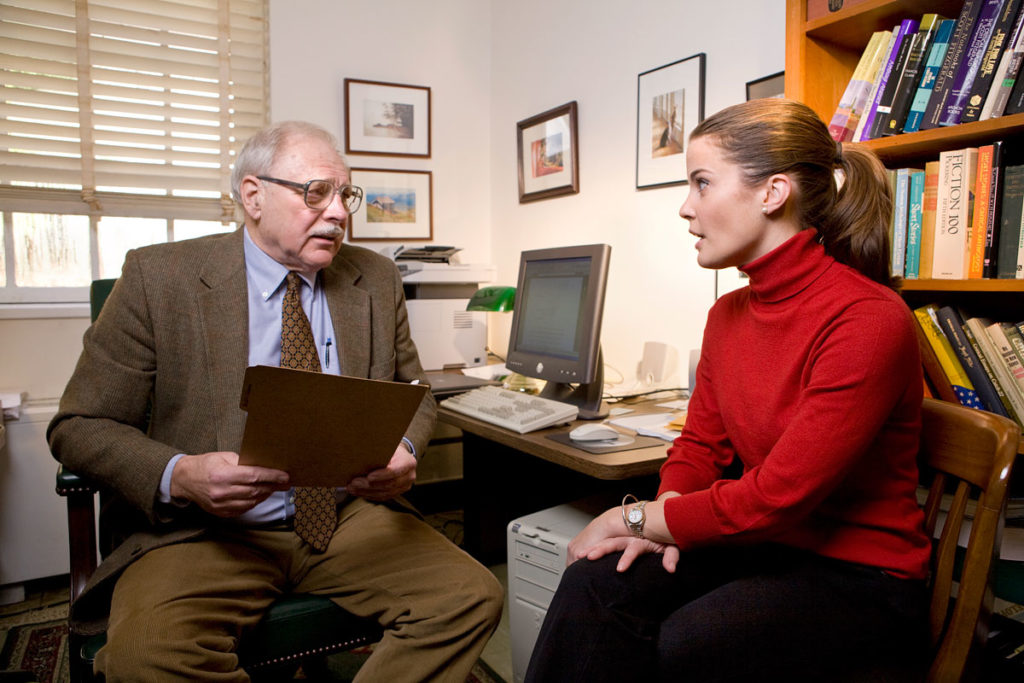“It is critical that doctoral students and their major professors form productive relationships,” said Maureen Grasso, dean of the Graduate School. “Clarifying expectations, keeping an open line of communication and approaching everything in a collaborative manner are all characteristics of a productive relationship and what can make the difference in completing or dropping out of a doctoral program.”
Jason Cantarella, associate professor of mathematics; James Nagel, J.O. Eidson Distinguished Professor of American Literature; and Thomas Reeves, professor in educational psychology and instructional technology, respectively, discussed creating a learning community across the department, developing effective mentoring relationships with individual students and structuring the learning environment to foster strong student-faculty relationships.
“We get them involved right away with working on a project together,” said Cantarella of the mathematics department’s approach to building community among graduate students. “We let students and faculty mentors find each other through this team approach, and we’ve found that they actually do a better job of pairing themselves up than being assigned before they arrive on campus.”
In addition to establishing clearly defined objectives for his American literature doctoral students at the beginning of the program, Nagel takes a very hands-on approach, from shooting hoops on Saturdays to sharing meals with them to meeting weekly to working closely with them through their job searches.
“Effective mentoring is a highly personal matter involving very close contact between student and major professor, frequent discussions and a close overview of virtually every aspect of the growth of the student,” he said.
In addition to visibility and feedback on the part of faculty, Reeves, a professor in the learning, design and technology Ph.D. program, attributes the unique aspect of his four-year residential program with a strong emphasis on both faculty-student and student-student mentoring to its completion rate of more than 80 percent for doctoral degrees.
The mentoring seminar was third in the four-part series conducted by the Graduate School in its initiative for optimal doctoral completion.
